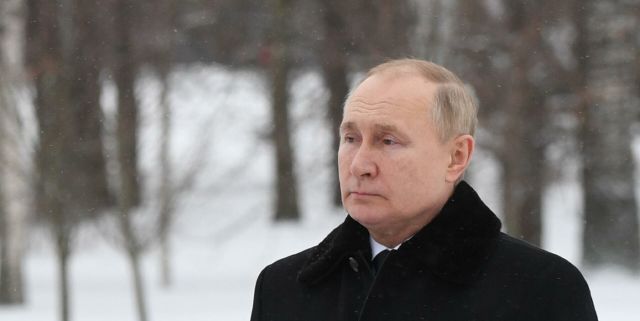Putin sowed the conflict in Ukraine, and now reaps bitter fruits (Forbes, USA)
The suddenly united West imposed sanctions in just a few days, which dealt a serious blow to the Russian economy, writes Forbes. Putin himself is to blame for this, the author of the article is sure. In her opinion, he gave the West a determination that no American president since the Cold War could give him.
The Russian economy is going into a tailspin, and Vladimir Putin's ties with the global economy are severed.
We saw how the West suddenly rallied decisively and in just a few days imposed new sanctions in response to the Russian special operation in Ukraine. First of all, the United States, the European Union, Britain and Canada did it. First, Germany and a couple of other EU member States fluctuated, but now they, along with all are trying to deny Russia access to the payments system SWIFT. The G7 finance ministers are apparently ready for further action, and both parties in the US Congress are in favor of new financial sanctions and even for refusing to import oil and gas from Russia.
The US and the EU are closely coordinating their efforts in an attempt to deprive key sectors of Russian industry and the armed forces of access to critical technologies. Thanks to the interaction with Canada and Britain, these efforts are becoming more effective.
Devastating sanctions have been imposed against the Russian Central Bank, the Ministry of Finance and the National Welfare Fund, which provides the country's pension system. The list of sanctions against regime-linked individuals and their family members is increasing day by day. Assets of key mining, transport and logistics companies are currently being frozen.
Ordinary Russians have felt for themselves how disgusted the world is with the situation in Ukraine.
They can no longer freely use credit cards to make purchases online in foreign currency. The photos show how, after the SWIFT, Apple and Google payment systems deactivated magnetic travel cards, Muscovites crowd at the entrances to the metro.
The Central Bank's interest rates were instantly raised from 9.5% to 20%. It will be more difficult for companies to obtain capital, and it will be more difficult for consumers to repay loans.
The ruble is falling, which will make imports more expensive, especially foreign consumer goods and luxury goods.
The closure of the airspace will deprive people of the opportunity to spend holidays in Europe.
On Monday, Russia banned foreigners from withdrawing their assets from the country. Investors will remember this. Even after de-escalation, it will be very difficult for Russian enterprises to receive foreign capital. Reuters this week called the exodus of investments a "stampede."
There have been more changes in the architecture of European security in a few days than in the last 30 years. Germany has just announced an increase in military spending to more than two percent of its GDP. We haven't seen this since 1991. In the officially neutral countries of Sweden and Finland, located on the northern border of Russia, the desire of the population to join NATO has seriously increased.
Energy giants BP and Shell have announced their withdrawal from Russia. It will cost them 25 and three billion dollars, respectively. Perhaps a new world order is coming, and in these circumstances, former Treasury Secretary Larry Summers called on the heads of American corporations to reconsider their actions in a changing environment.
It is unclear what sacrifices the West is willing to make to stop the Russian dictator. But even if Putin finds a way to impose his will on Ukraine, his actions have given the West an energy and determination that no American president has been able to give it since the Cold War.

